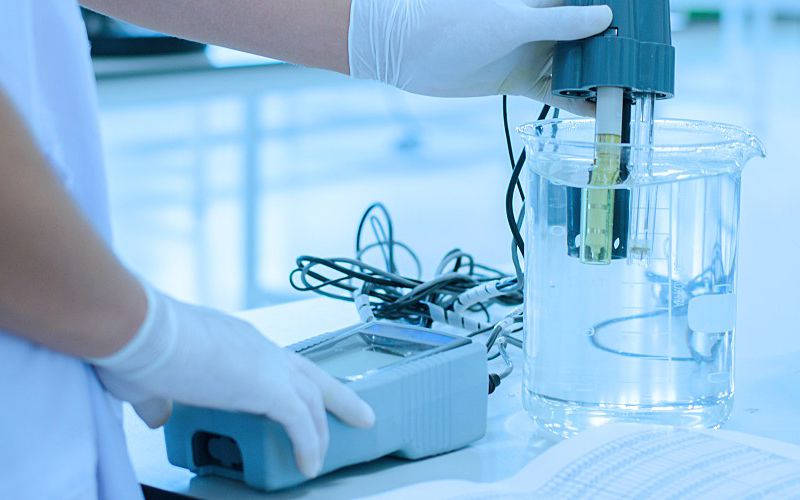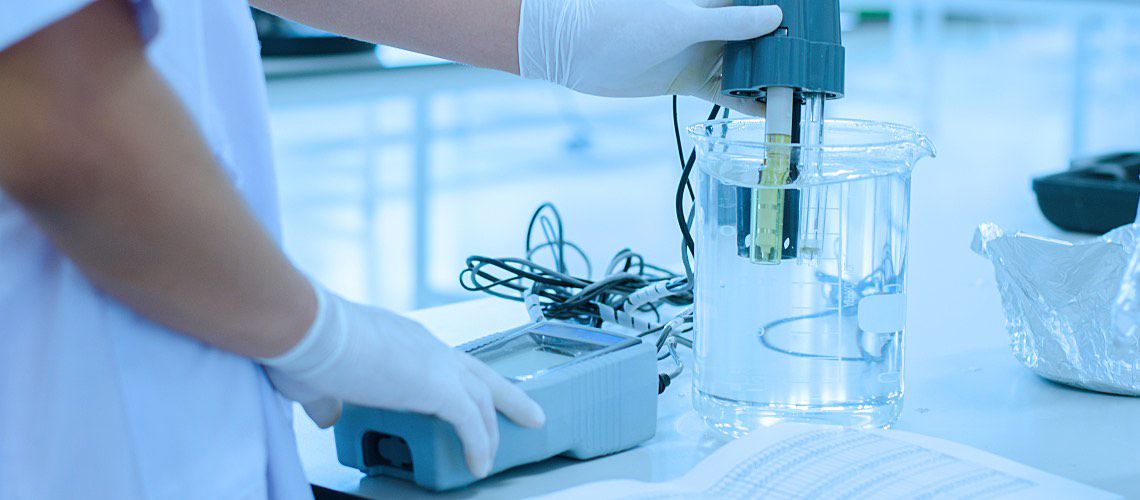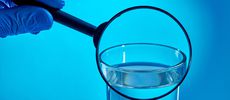Industry Insights: 5 Ways to Stay on Top from Afar


Keeping up with industry news and trends is critical for water testing lab owners, managers, and technicians. Having inside knowledge about changes to rules, regulations, and testing is vital to your lab operation. In addition, you want to know the challenges you're facing and identify opportunities to grow and strengthen your business.
But given the current landscape, you might not be ready to start attending in-person events or conferences. So, how will you interact with your peers, keep up with standards, and gather information?
Below are five ways to gain insight and keep your business at the forefront of water quality testing without leaving your lab or home.
1. Subscribe to a Trade Blog or Magazine
To stay on top of trends and gain insights, subscribing to trade blogs and publications will help you identify key topics pertinent to your lab. The following resources provide information on water quality, wastewater treatment, and running a water testing lab.
- Idexx Currents keeps you up to date on water industry news and research and provides tips on running your lab, communication strategies, and managing your team.
- Water Online connects technology suppliers to water and wastewater professionals in government and industry.
- Treatment Plant Operator covers topics of interest in wastewater treatment plants, from pumps and dewatering to disinfection and instrumentation.
- Smart Water Magazine offers news and information on water companies and public organizations, along with breaking news on the global water sector.
- Environment Science & Engineering provides information for professionals involved in the design, construction, and operation of municipal water and wastewater facilities.
In addition, state and federal organizations and nonprofits also provide extensive information on water quality standards, testing, health impacts, and conservation.
- The U.S. Environmental Protection Agency (EPA) protects human health and the environment and provides assistance to ensure Americans have clean air, land, and water.
- Water Environment Federation Laboratory Practices Committee develops technical products to promote general understanding of laboratory practices for water and wastewater.
- National Ground Water Association advances groundwater knowledge and the success of members through education, outreach, advocacy, interaction, and enhancement of professional practices.
- American Water Works Association provides solutions and standards that support international water infrastructure.
2. Set up Google Alerts
To receive news on water quality and testing in your inbox on a regular basis, try Google alerts. This service sends emails to the user when it detects new results such as web pages, newspaper articles, blogs, or scientific research—that match the user's search term(s). Once you set up the alerts, you'll have access to the newest industry information.
Follow these steps:
- Set up a Gmail account on Google.
- Go to Google Alerts.
- In the Search box, enter a topic you want to follow—such as water quality, water testing, or environmental engineering.
- If you'd like to change options for alerts, use the "show options" setting to choose how often you see alerts and the types of sites, language, region, and results you'd like.
- Then click "create alert," and you'll get emails for matching search results.
For example, a recent search on "water quality" turned up stories on testing water for microplastics in California, determining the extent of sewage contamination in Florida, and testing for forever chemicals—per- and polyfluoroalkyl substances that don't break down—by Iowa Department of Natural Resources.
3. Connect With Influencers and Experts on Social Media
Another way to keep up with the latest news and trends is by connecting with and following Influencers and experts on LinkedIn and Twitter. If you make a habit of commenting on posts you find interesting, you'll get noticed and gain access to leaders in your field.
On LinkedIn, search the term "water laboratory" or another relevant term, and you'll be able to connect with water lab managers, technicians, and scientists to find out what they're discussing online. You can also join groups like the Water and Wastewater Laboratory Professionals or the Laboratory Practices group to learn from other water quality experts.
On Twitter, you can see posts from various organizations by following them. Try @EPAwater, @WQAorg, @NRDSWater, and @WQPnews to learn about water quality standards, news, trends, and products. You can also search for posts by using a hashtag. For example, for "water quality," search using the hashtag #waterquality.
4. Go Back to School or Take Online Courses
Now may be an ideal time to pursue further education in areas that interest you, whether you attend in person or online. Many colleges offer coursework in subjects relevant to water testing labs, including water quality analysis, water quality management, water systems, and water treatment. In addition to online programs, check your local schools and state agencies to see what your community is offering.
Some water quality organizations also provide education and training in water lab testing and practices. Some courses are free, but others charge a fee.
- American Water Works Association offers eLearning courses you can complete at your own pace. Classes are both self-taught and instructor-led, and a few are even free. You can enroll in a program to get certified in areas like water supply and demand management, emergency planning, and cybersecurity.
- The Water Quality Association offers paid certification courses for water treatment industry professionals. Certification demonstrates your commitment to high professional standards, builds expertise, and gives you the background for expert customer service.
- The EPA offers Drinking Water Training with webinars and online calls on topics that range from revisions to the Consumer Confidence Report Rules to resilience training for drinking water and wastewater utilities.
- The IDEXX Water Academy provides expert online training for laboratory managers, technicians, and other water professionals to enhance their laboratories and develop their careers.
5. Attend a Conference—Virtually
You don't have to show up in person to get the benefits of a conference. Instead, consider attending a virtual conference. Aside from sessions that are live only, you can stream conference events at any time. You can also connect with people from around the world instead of only those who can afford to fly to an in-person event. This is a great opportunity to interact with and learn from industry peers and leaders, grow your network, and take advantage of new ideas that will make your business even more rewarding and profitable.






